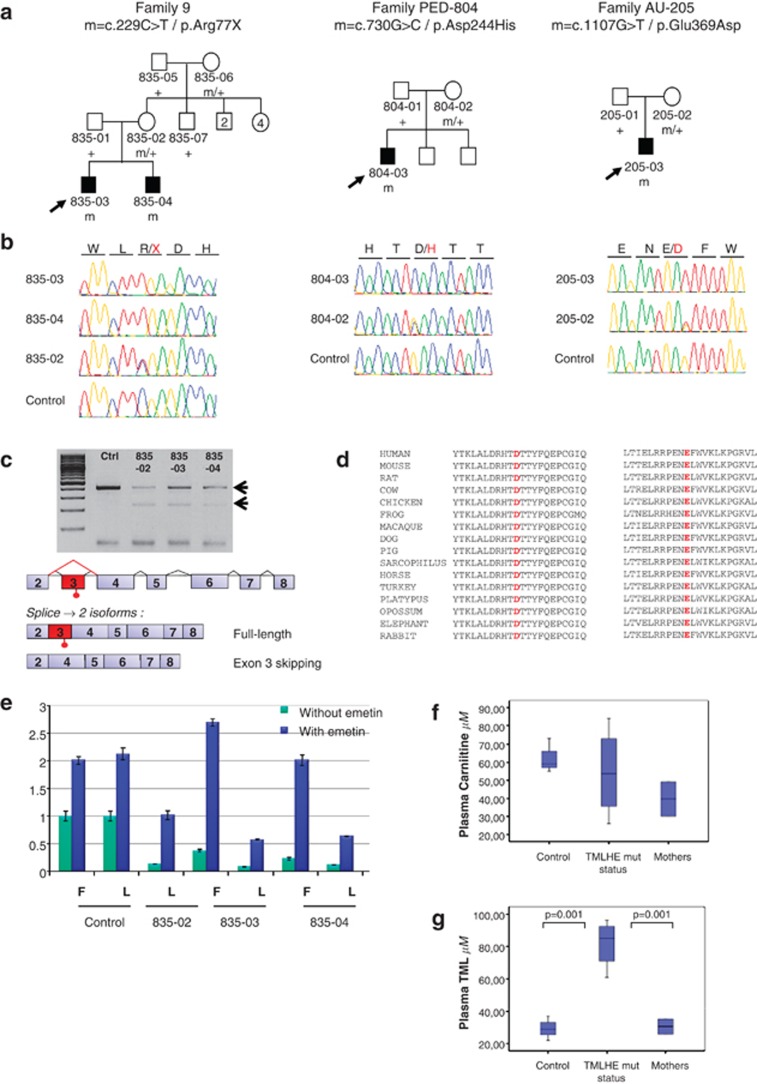Figure 3.
Identification of TMLHE mutations in three families. (a) Pedigrees and segregation analysis of the TMLHE mutations in families 9, PED-804 and AU-205. The arrows indicate the index cases. (b) Sequence electropherograms of the mutations at the hemizygous state in the index cases (835–03 in family 9, 804–03 and 205–03) and the affected brother of family 9 (835–04), and at the heterozygous state in the mothers (835–02, 804–02 and 205–02). (c) Analysis of TMLHE mRNA in lymphoblasts from members of family 9 and schematic representations of the splicing isoforms detected in subjects with the p.Arg77X mutation in exon 3. Reverse transcriptase–PCR products using primer pairs in exons 2 and 4, run on 2% agarose gels, showed two mRNA isoforms in the index case (835–03), his affected brother (835–04) and his mother (835–02) and a single isoform in a control subject (c). Sequence analysis confirmed that the long isoform contains the premature termination codon in exon 3 and that exon 3 was skipped in the short isoform, probably as a consequence of nonsense-associated alternative splicing. (d) Alignment of the region flanking the two missense variants in orthologous proteins showing the conservation of the altered amino acids. (e) Quantification of TMLHE mRNA expression in fibroblasts (F) and lymphoblasts (L) from members of family 9 by quantitative real-time PCR, using primer pairs in exons 7 and 8. TMLHE mRNA was expressed 10 times less in patients compared with healthy controls (green bars). Overnight treatment with 10 μg ml−1 emetin (blue bars), an inhibitor of nonsense-mediated decay, restored the expression of the TMLHE mRNA. (f) Assay of free carnitine by UPLC (ultra performance liquid chromatography) chromatographic and TQD (tandem quadrupole detector) mass spectrometry in the plasma of patients. (g) Assay of trimethyllysine (TML) by UPLC chromatographic and TQD mass spectrometry showing a 2–3-fold increase in the plasma of patients.

